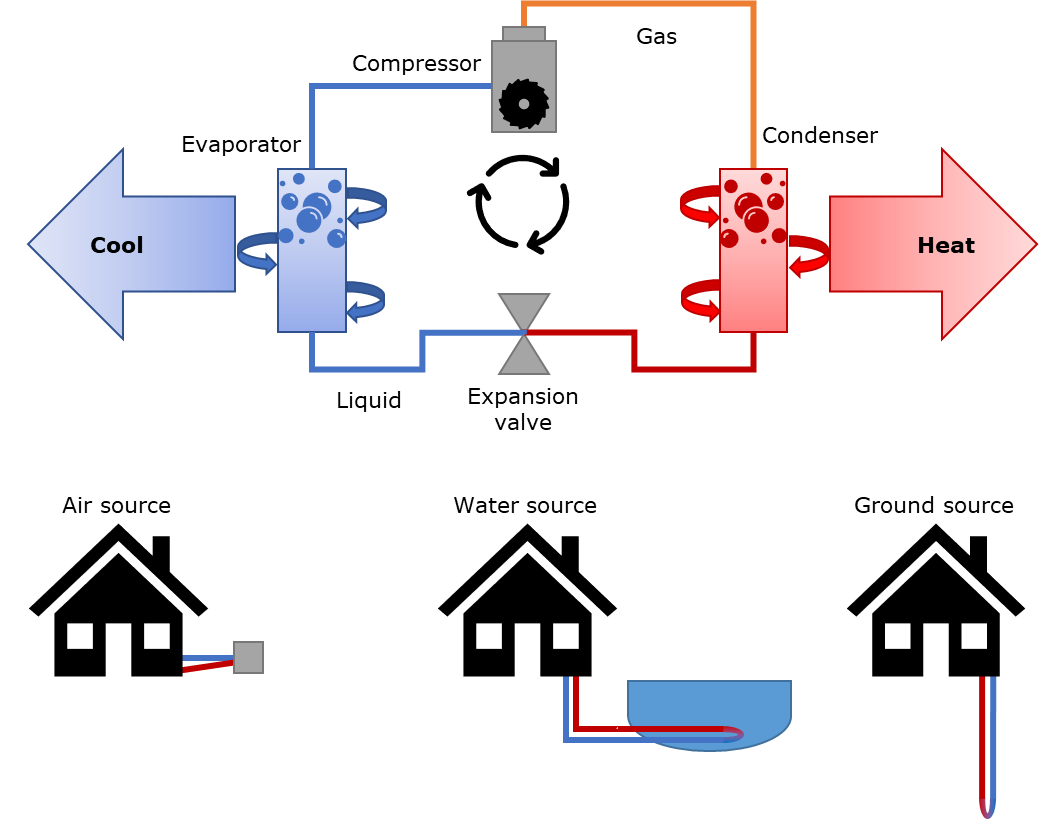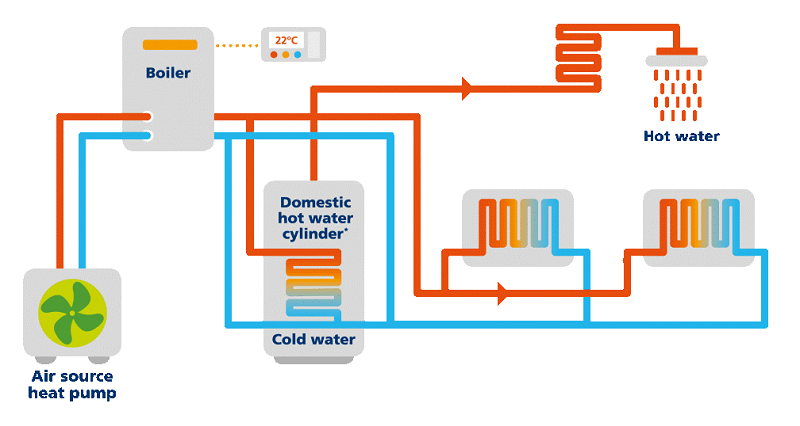Heat pumps
Financial assistance to help install a heat pump
Boiler Upgrade Scheme
The government is offering grants of £7,500 towards the cost of installing a heat pump and in some cases biomass boilers to properties across England and Wales through the Boiler Upgrade Scheme.
You are eligible for a grant if:
- you own the property you are applying for
- you are replacing fossil fuel heating systems - such as oil, gas, electric or LPG which stands for liquefied petroleum gas
- your property has a valid Energy Performance Certificate (EPC)
To find an installer or apply to the scheme, go to Energy Efficient Home - Heat Pumps.
Find out more here about the scheme: Ofgem - Boiler Upgrade Scheme (BUS)
For alternative funding options, please see out Domestic energy efficiency funding page.
Why upgrade to a Heat pump
How a heat pump works
Around 31 per cent of a household’s carbon dioxide emissions come from space and water heating. To meet the governments target of net zero carbon emissions by 2050 new technologies such as heat pumps will be needed to reduce these emissions while providing comfortable living conditions.
A heat pump is a device that can replace traditional heating systems such as boilers to provide space and water heating within both domestic and commercial settings. Rather than burning a fuel to produce heat, they move heat from a low-temperature heat source and ‘pump’ it to a higher temperature where it can be used to provide space heating or produce hot water. The source is normally heat in the ground or the outside air.
The higher the temperature in the source location relative to the desired location, the more efficient heat pumps are. Their efficiency is expressed as a coefficient of performance where a higher figure indicates a more efficient system and therefore less energy is required for the same output. Heat pumps are powered by electricity and decarbonisation of the national grid further helps to reduce the environmental impact of the already efficient technology. Where homes have solar panels even greater carbon savings can be made.
The average efficiency or coefficient of performance (CoP) for a typical domestic heat pump is 3 to 4 CoP but this will vary throughout the year due to seasonal changes and may vary by property due to differences in system size or layout.
Heat pump process
The diagram below shows the flow of hot and cold water and refrigerant around a typical heat pump installation. It shows how heat from air or the ground warms the refrigerant in the evaporator, how the refrigerant is compressed to increase its pressure and temperature before transferring its heat to your home via the condenser. The process then begins again with the refrigerant cooling at the expansion valve ready to collect more heat.
Typically, the output temperature of heat pump into your home is between 28℃ and 45℃ depending on the heating system and heat pump installation. This means that it can be necessary to upgrade your current radiators to ensure that your home is heated to a cosy temperature.

Key advantages
- Lower greenhouse gas emissions from heating your home
- A more balanced supply of heat helping to improve control over your heating system
- Potential for lower fuel bills
- Where hybrid systems are installed there is a reduced need for LPG or oil deliveries
Hybrid heat pump
One alternative to completely replacing your existing boiler and radiators is to use a hybrid heat pump system. A new heat pump can be installed to provide the majority of the heat required to heat your home but is supported by your existing boiler for particularly cold days or where your heating demand is high. This approach avoids you needing to replace any radiators and is supplied with a sophisticated control system to automatically switch between systems.
The village of Gazeley was originally selected to be part of a trial of the hybrid heat pump systems where many people heat their home using LPG or oil. It is anticipated that a greater roll out of the scheme to other areas of West Suffolk will follow shortly after. Gazeley looks at going green on renewable energy for residents - press release 30 September 2020
The diagram below shows the flow of hot and cold water around a typical hybrid heat pump installation, where the heat pump and boiler work together to produce hot water for direct use and space heating.


